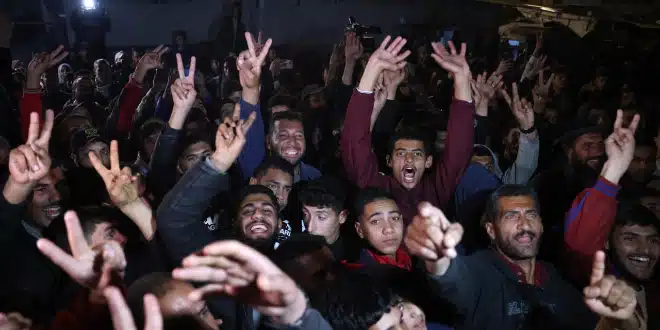An Israeli government agreement now provides official documentation to this ceasefire and brings it in line to contribute toward putting a halt on continuous hostilities between Israel and Gaza. A cease-fire in that respect ushers a sober path of easing tension, coupled with an upshots of the humanitarian crisis within the region. The brokered ceasefire arrangement over international mediators looks for critical junctures to carve pathways to lasting peace as a new direction out of conflict.
Salient Features of Ceasefire Agreement
There are some pivotal terms in this ceasefire agreement to diffuse the situation and give relief to the civilians. These are:
- Immediate Halt to Hostilities: Both Israel and Palestinian factions agreed to a halt in military operations. It means an end to airstrikes, rocket launches, and other violent activities that had caused devastation on both sides.
- Humanitarian Access: Another most important aspect of the agreement is access to humanitarian aid in the Gaza region. Relief agencies would be free to supply food, water, and other essential items, besides providing medical aid, to affected persons due to the conflict.
- Prisoner Exchange Discussions: The discussion over a potential prisoner swap has been included within the larger agreement, showing immediately willingness to delve into the well-worn list of grievances.
- Cross-Border Movements: The border crossings shall be opened up to civilians and commercial activities as well, providing the much-needed economic lifeline that Gaza needs.
International Mediation and Support
This follows concerted efforts by international mediators including the United Nations, Egypt, and Qatar. Indeed, they played a significant facilitating role in enabling dialogue between the conflicting parties. Global leaders issued statements which were all supportive, with one central line being that more diplomacy was called for to make sure the ceasefire endured.
The UN Secretary-General called for the immediate implementation of the ceasefire and urged both parties to adhere to the terms of the agreement. Similarly, Egypt, which played a leading role in the negotiation of the agreement, pledged to monitor the implementation process and ensure full compliance.
But the ceasefire is not without its problems. The two sides have been wary of each other over the implementation of the agreement. In the past, ceasefires have often proved short-lived, with violations creeping in soon after the announcement.
The root causes of the conflict-issues of territory, security, and political autonomy-remain unresolved. As analysts note, unless the root causes are addressed, the ceasefire may be only a temporary reprieve.
This ceasefire comes after weeks of intense violence that has uprooted, injured, or killed thousands of civilians in Gaza and southern Israel. The hospitals in Gaza have been overwhelmed by casualties, and the key infrastructure has suffered extensive damage.
For the families torn apart by the conflict, this agreement brings a ray of hope. The possible halt to airstrikes and chances of rebuilding life in Gaza are well embraced by many of its residents. Likewise, communities in southern Israel, frequently facing rocket attacks, are also embracing the possibility for normalcy.
The responsibility of the Gaza ceasefire deal can have wider ramifications for regional stability. Neighboring countries are closely watching developments as escalations in Gaza often send ripples across the Middle East.
Besides, the deal has ramifications for the Israeli government, which has been under pressure from both domestic and international circles to ease the humanitarian crisis in Gaza. For the Palestinians, the truce offers an opportunity to advocate for more significant international recognition and support.
Most of the experts opine that only a comprehensive strategy will bring enduring peace, considering humanitarian needs, economic development, and political problems. It’s also about rebuilding confidence through restrictions on Gaza being eased and talks between the protagonists.
The international community will continue to play a critical role in the consolidation of the ceasefire and in finding long-term solutions to the conflict. It will take cooperation from both sides and continued global attention if the cycle of violence is to be broken.
The Israeli government’s approval of the Gaza ceasefire deal marks a pivotal moment in the region’s ongoing conflict. While it does represent a much-needed break in the fighting and opens a window of opportunity for humanitarian relief, how this ultimately fits into the pathway toward a lasting peace is very uncertain. A vision of a more stable and peaceful future in the region may be realized by addressing the root causes of the conflict and fostering dialogue. For now, the ceasefire provides a vital opportunity to focus on rebuilding and healing the lives shattered by the conflict.
 The Daily Star Ireland
The Daily Star Ireland

